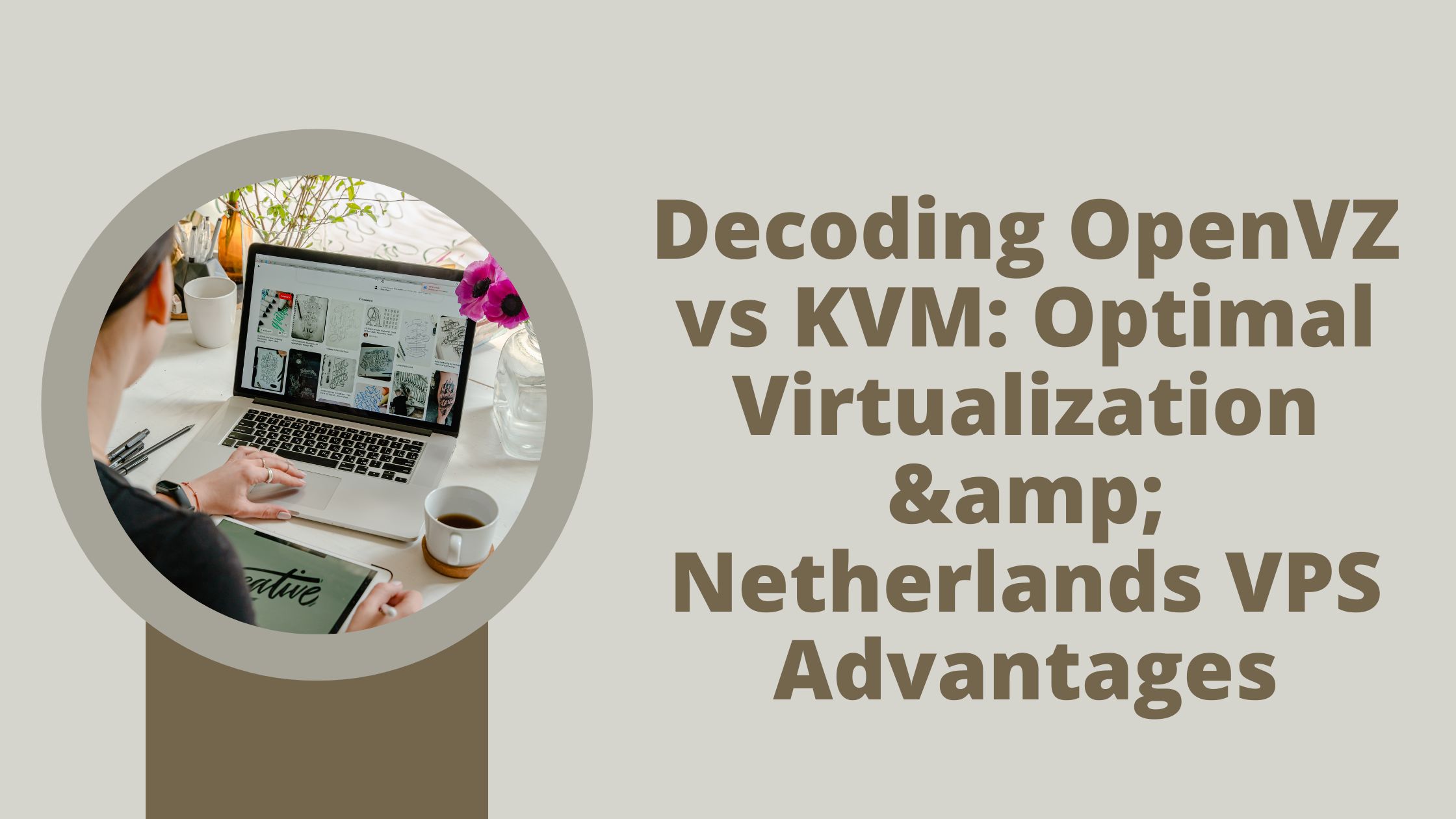Decoding OpenVZ vs KVM: Optimal Virtualization & Netherlands VPS Advantages

- November 27, 2023
- 1 Comment
Introduction:
In the ever-evolving landscape of virtualization technologies, two prominent players stand out – OpenVZ and KVM. Choosing the right virtualization solution is crucial for individuals and businesses seeking optimal performance, scalability, and resource management. Additionally, for those considering a hosting solution in the Netherlands, OpenVZ VPS hosting provides a compelling option. In this blog post, we’ll delve into the differences between OpenVZ and KVM and explore the advantages of OpenVZ Netherlands VPS hosting.
OpenVZ vs KVM:
- Architecture:
- OpenVZ: OpenVZ is a container-based virtualization solution that shares the host kernel among multiple containers (VPS). This lightweight approach results in efficient resource utilization and high-density server configurations.
- KVM (Kernel-based Virtual Machine): KVM, on the other hand, is a full virtualization solution that allows running multiple virtual machines with different operating systems on a single physical host. Each VM operates as an independent entity with its own kernel.
- Performance:
- OpenVZ: Due to its container-based architecture, OpenVZ can achieve high levels of performance by avoiding the overhead associated with full virtualization. However, it may be less suitable for certain workloads that require specific kernel modules or custom kernel configurations.
- KVM: KVM provides a more isolated environment, making it versatile and suitable for various workloads, including those requiring specific kernel configurations. It tends to offer better performance for resource-intensive applications.
- Isolation:
- OpenVZ: Containers in OpenVZ share the host kernel, which means they have a lower level of isolation compared to KVM. While this makes OpenVZ more lightweight, it may be a consideration for users who require strong isolation between virtual environments.
- KVM: KVM provides stronger isolation between virtual machines since each VM has its own kernel. This makes it a preferred choice for scenarios where security and isolation are top priorities.
OpenVZ Netherlands VPS Hosting:
Now, let’s shift our focus to the advantages of choosing OpenVZ for VPS hosting in the Netherlands:
- Cost-Effective Solution:
- OpenVZ’s lightweight architecture allows for high-density server configurations, making it a cost-effective option for VPS hosting. This can translate to lower hosting costs for users without compromising performance.
- Efficient Resource Utilization:
- OpenVZ excels at efficient resource utilization, making it ideal for users who want to maximize the use of available resources. This is particularly beneficial for hosting providers looking to offer scalable and affordable VPS plans.
- Netherlands Hosting Benefits:
- Hosting your VPS in the Netherlands comes with its own set of advantages. The Netherlands is known for its excellent internet connectivity, data center infrastructure, and favorable legal environment. This makes it an attractive location for businesses and individuals looking for reliable and high-performance hosting solutions.
Conclusion:
In the ongoing debate between OpenVZ and KVM, the choice ultimately depends on specific use cases, performance requirements, and preferences for isolation. OpenVZ’s container-based approach and its benefits in terms of cost-effective hosting make it a compelling choice, especially when combined with the advantageous hosting environment in the Netherlands. Whether you prioritize lightweight virtualization or seek robust isolation, understanding the nuances of OpenVZ and KVM is essential for making informed decisions about your virtualization and hosting needs.





Comments
OpenVZ vs KVM: Choosing Virtualization for Neth...
[…] Explore the differences between OpenVZ and KVM virtualization, and discover the advantages of OpenVZ Netherlands VPS hosting for optimal performance and scalability. […]